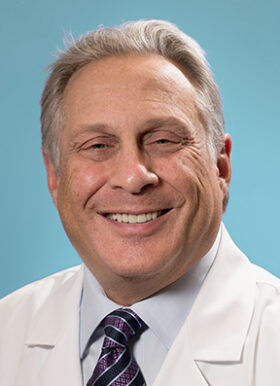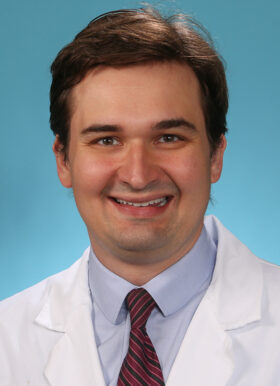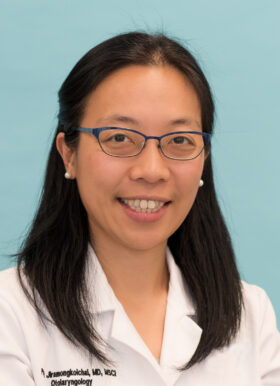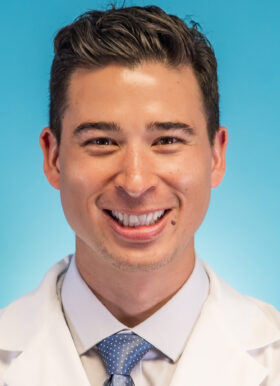Program Director

Jacques A. Herzog, MD
Professor of Otolaryngology—Head & Neck Surgery;
Chief, Division of Otology/Neurotology
Castle Connolly Top Doctor
- Phone: 314-453-0001
| Program Coordinator: | Kristin Vierling Department of Otolaryngology – Head & Neck Surgery Washington University School of Medicine 660 S. Euclid Ave., Campus Box 8115 St. Louis, MO 63110 Phone: (314) 273-6317 |
| Program E-mail: | kvierling@wustl.edu |
|
Program Duration: Application Deadline: Application: Interview Dates: Match Day: |
This is a two-year program starting July 1, 2027 TBA TBA TBA |
Goals and Objectives for Training
The Neurotology Training Program at Washington University in St. Louis provides a comprehensive experience in the field of neurotology. Our ACGME-accredited program fosters a collegial, high-volume fellowship experience with auxiliary research opportunities unique to Washington University and the Department of Otolaryngology – Head and Neck Surgery.
The educational mission of the training program at WashU Medicine is to prepare its fellows to become competent and highly-skilled neurotologists with excellent training in clinical and surgical patient care, mastery of existing knowledge, excellence in teaching, and development of modern research skills. Through mentorship and hands-on experience, the fellow should be well equipped to handle the rigors of a busy otology/neurotology practice and strive to be a leader in our specialty. Semiannual evaluations measure the fellow’s development through the Neurotology milestones set forth by the ACGME.
View the ACGME Neurotology Milestones (PDF) »
Neurotology Faculty

Nedim Durakovic, MD
Associate Professor of Otolaryngology—Head & Neck Surgery;
Director, Dizziness and Balance Center
- Phone: 314-362-7509

Jacques A. Herzog, MD
Professor of Otolaryngology—Head & Neck Surgery;
Chief, Division of Otology/Neurotology
Castle Connolly Top Doctor
- Phone: 314-453-0001

Pawina Jiramongkolchai, MD
Assistant Professor of Otolaryngology—Head & Neck Surgery
- Phone: 314-362-7509
Facilities
Training occurs at Barnes-Jewish Hospital, BJ West County Hospital, West County Surgery Center, St. Louis Children’s Hospital, and Missouri Baptist Hospital.
Curriculum Highlights
- High-volume lateral skull base tumor practice with exposure to a variety of lateral skull base approaches including translabyrinthine, retrosigmoid, middle cranial fossa, and combined petrosal approaches.
- Interdisciplinary monthly skull-base conference with Neurosurgery, Head and Neck Surgery, Radiation Oncology, Medical Oncology, and Neuroradiology.
- Hands-on experience with a variety of advanced otologic surgeries for pediatric pathologies, chronic ear disease, otosclerosis, and superior canal dehiscence.
- Leaders in cochlear implantation trials, imaging, and innovation. Use of all 3 manufacturers’ devices.
- Comprehensive vestibular experience with up-to-date diagnostic and management priniciples. Our vestibular lab employs modern testing modalities with a multi-disciplinary approach to dizziness.
- Dedicated mentorship and a flexible schedule to maximize surgical experience with completing and presenting research projects on a national stage.
- Exposure to endoscopic ear surgery for chronic ear disease and select lateral skull base pathologies.
- State-of-the-art simulation (temporal bone) lab with ample supply of bones. The curriculum includes labs dedicated to resident and fellow education, as well as coordinated dissections with our neurosurgical colleagues.
- Monthly otology conference for in-depth discussions relevant to fellowship education.
- Extensive departmental and university-based research support.
- Weekly informal journal clubs.
- Intraoperative experiences with and without otolaryngology residents.
- No primary call.
Research
Washington University in St. Louis has a strong history of basic science and clinical research. The Department of Otolaryngology remains one of the top funded otolaryngology departments in the country and much of the research efforts are dedicated to otology/neurotology. Fellows are encouraged to take advantage of the unique intradepartmental research support services as well as collaborate with any of the basic science labs. There is also potential to collaborate with other strong departments at Washington University, including but not limited to, neurosurgery, radiology, engineering, genetics, or the Knight Alzheimer’s Disease Research Center.
The Neurotology fellow will on average have one day per week dedicated to research. There is no pre-determined research block, rather the research time will be coordinated with the clinical schedule and upcoming research deadlines. The expectation is to have multiple projects completed for publication and presentations at relevant national meetings. The fellowship staff will work closely with the fellow to offer mentorship and collaboration.
